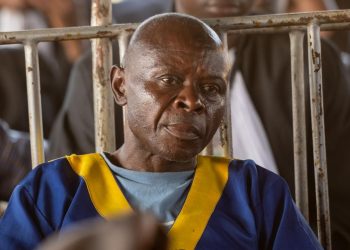In 2020, we had trauma every which way: a deadly pandemic, an economic plunge, a reckoning over race and a fraught election made for a time that will shape history for decades to come. That we are still coming to terms with all of it was clearer than ever this week.
In a Minneapolis courtroom, witnesses relived the pain of George Floyd’s public death, as prosecutors revealed that Derek Chauvin, then a police officer and now on trial for the events of last May, knelt on Floyd’s neck for 9 minutes and 29 seconds, even longer than previously thought.
For all the shock that the testimony produced, Joseph and others noted that Black Americans have become accustomed to such stark injustice.
Nia-Malika Henderson recalled her mother’s tears in 1992 when violence broke out in Los Angeles after police officers were acquitted of the beating of Rodney King, which had been captured on video. “‘Black people are in so much pain,’ she cried, covering her face with her hands and burying her head in her knees.”
Henderson isn’t watching the murder trial of Derek Chauvin. She confessed that despite being a journalist, “I have never seen the George Floyd video.” On the trial, she wrote, “I keep my television muted if it is onscreen. Or I change the channel to avoid seeing anything at all. More specifically, I, like so many others who have seen too much, am avoiding yet another display of Black pain, Black trauma and Black death.”



























































